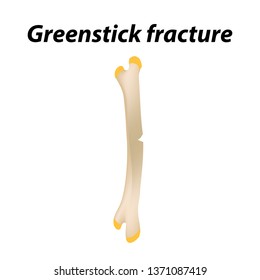The Relevance Of Nourishment In Handling Neck And Back Pain: Advised Foods And Those To Prevent
The Relevance Of Nourishment In Handling Neck And Back Pain: Advised Foods And Those To Prevent
Blog Article
Article Author-Russo Jordan
When it concerns managing your back pain, the food choices you make can dramatically impact how you feel each day. Envision having the ability to relieve your discomfort just by changing what you consume. By recognizing the duty of nourishment in neck and back pain monitoring and recognizing which foods to incorporate or stay away from, you can take aggressive actions in the direction of a healthier and extra comfortable way of living. The connection between nutrition and back health is more profound than you might recognize-- let's explore how certain foods can either soothe or intensify your neck and back pain.
Relevance of Nourishment in Neck And Back Pain
Nourishment plays an important function in taking care of neck and back pain. Your diet plan can substantially impact swelling degrees and total pain degrees in your back. Eating a well balanced diet regimen abundant in nutrients like vitamins D and K, calcium, magnesium, and omega-3 fats can help reduce inflammation and strengthen bones, which are necessary for back wellness.
Furthermore, maintaining a healthy and balanced weight via appropriate nourishment can ease stress on your back, minimizing the danger of neck and back pain.
In addition, certain nutrients like antioxidants found in vegetables and fruits can help fight oxidative stress and anxiety and promote healing in the body, including the back muscles and spine.
On the other hand, consuming too much quantities of refined foods, sweet beverages, and unhealthy fats can contribute to swelling and weight gain, exacerbating pain in the back.
Foods to Eat for Back Health
To sustain a healthy back, integrating nutrient-rich foods right into your day-to-day dishes is key. Including foods high in anti-oxidants like berries, spinach, and kale can help in reducing swelling in your back, easing discomfort and pain. Omega-3 fats discovered in fatty fish such as salmon and mackerel have anti-inflammatory residential or commercial properties that can benefit your back health.
Additionally, eating nuts and seeds like almonds, walnuts, and chia seeds supplies important nutrients like magnesium and vitamin E, which sustain muscular tissue function and lower oxidative stress. Integrating Suggested Online site as chicken, turkey, and tofu can assist in muscle mass fixing and upkeep, advertising a strong back.
Don't fail to remember to include dairy or fortified plant-based alternatives for calcium to support bone wellness. Finally, moisturize with a lot of water to maintain your spinal discs moisturized and functioning efficiently. By including these nutrient-dense foods in your diet regimen, you can nurture your back and support general spine health and wellness.
Foods to Stay Clear Of for Pain In The Back
Choose staying clear of refined foods high in added sugars and trans fats when looking for remedy for neck and back pain. These types of foods can add to swelling in the body, which might worsen pain in the back. Say no to sweet treats like candy, breads, and sugary beverages, along with fast food items like hamburgers, french fries, and fried chicken that are commonly packed with trans fats.
In addition, avoid foods including high levels of polished carbohydrates, such as white bread, pasta, and pastries, as they can spike blood glucose levels and potentially intensify inflammation in the body.
It's likewise a good idea to limit your consumption of foods high in hydrogenated fats, like red meat and full-fat milk products, as they can add to swelling. Processed https://chiropractic-family-clini62739.yomoblog.com/38545436/enhancing-your-athletic-performance-the-duty-of-a-chiropractic-practitioner like delicatessens meats, chips, and packaged snacks are often high in hydrogenated fats and ought to be eaten in moderation.
Conclusion
Finally, focusing on your diet plan and making clever food choices can have a substantial effect on managing pain in the back. By incorporating nutrient-rich foods like berries, fatty fish, nuts, and lean proteins, and avoiding processed and sweet items, you can help reduce inflammation and support on the whole back health. Bear in mind, what you consume plays a crucial function in just how you really feel, so ensure to prioritize your nourishment for a much healthier back.
